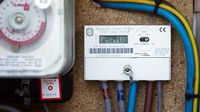As energy prices continue to fluctuate, millions of households across the UK are bracing for a significant rise in their energy bills starting April 1, 2025. The latest price cap, set by Ofgem, will increase by 6.4%, adding an estimated £111 to the average household's annual gas and electricity costs, bringing the total to £1,849. This increase is particularly concerning for the 22 million households on standard variable tariffs, which are subject to quarterly adjustments based on wholesale energy prices.
Currently, the energy price cap for January to March 2025 stands at £1,738. However, this figure is set to rise as the new cap takes effect. Households not on fixed tariffs will feel the impact immediately, as the increase will apply to their bills starting next week. For those who have not yet fixed their rates, it is crucial to consider locking in a cheaper deal before the increase takes place.
Dr. Craig Lowrey, Principal Consultant at Cornwall Insight, expressed some optimism despite the impending rise. "The latest forecast drop will bring some relief to households and the government, offering a welcome sign that energy prices are moving in the right direction," he noted. However, he cautioned against complacency, reminding consumers of the volatility in wholesale markets that can quickly alter pricing dynamics.
In light of these changes, many households are being advised to take proactive measures. For instance, sending a meter reading to energy suppliers before the price cap increase can help ensure that energy usage is charged at the lower rate. British Gas customers, for example, have until April 14 to submit their readings, while Ovo Energy customers must do so by April 11. E.on Next customers need to submit their readings by April 6, and Octopus Energy customers have until April 8.
Moreover, for the four million people on prepayment meters, the situation is particularly precarious. Citizens Advice has warned that even when energy consumption drops to zero, the daily standing charge continues to accumulate, leading to unexpected bills. Alex Belsham-Harris, Head of Energy Policy at Citizens Advice, stated, "If your prepayment meter isn’t topped up, these charges build up as debt. When you next add credit, a chunk of it will be swallowed up repaying what’s owed, leaving less for actual usage." Therefore, keeping prepayment meters topped up, even during periods of low usage, is essential to avoid financial pitfalls.
Experts recommend monitoring credit levels on prepayment meters and topping up regularly to prevent debt accumulation. Additionally, energy providers are offering various support options for customers struggling to pay their bills. Grants worth up to £2,000 are available for eligible customers, and many suppliers, including British Gas, EDF, E.ON, and Octopus Energy, have financial aid programs in place.
However, thousands of eligible customers miss out on assistance simply by not enrolling in the Priority Services Register (PSR). This register is designed to protect vulnerable households, providing benefits such as advance notice of power cuts and tailored support for those facing financial difficulties. It’s vital for qualifying households to reach out to their energy suppliers to apply for these programs.
While the rise in energy bills may seem daunting, households can take steps to mitigate the impact on their finances. Simple actions, such as unplugging appliances that consume energy even when not in use, can lead to significant savings over time. Research from Utilita indicates that the average UK household has around ten items left plugged in at any given time, which can contribute to inflated energy bills.
Among the biggest culprits are gaming consoles and televisions. For instance, a PlayStation 4 costs approximately 2.41p per hour when in use, while an Xbox One costs about 2.22p. When left on standby, these devices still consume energy, costing around 0.18p per hour, which adds up to £15.76 annually. Similarly, televisions use about 40 watts while in use and 10 watts on standby, resulting in an additional £15.76 per year for standby costs alone.
Additionally, appliances like printers, baby monitors, and laptops can also contribute to rising energy bills when left plugged in unnecessarily. For example, a printer uses 40 watts while in use and 4 watts on standby, leading to an extra £6.49 a year. A baby monitor, while necessary for parents, can add £4.87 annually if not turned off during the day. Even laptops, which consume about 75 watts when in use, can incur additional costs if left idle, costing an extra £4.87 over twelve months.
Given the rising costs and the potential for unexpected bills, it is essential for households to remain vigilant and proactive. By taking simple steps to reduce energy consumption and exploring available support options, families can better navigate the challenges posed by fluctuating energy prices.
As the UK moves forward into the spring and summer months, staying informed about energy costs and understanding how to manage them will be crucial for ensuring financial stability. With the right strategies and support, households can mitigate the impact of rising energy prices and avoid unnecessary financial strain.







